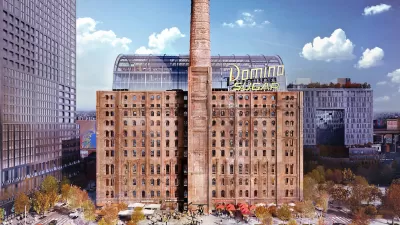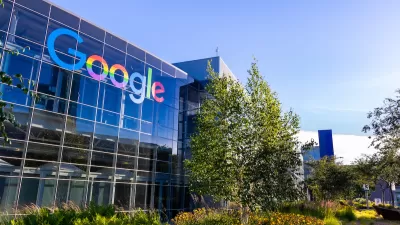With office buildings facing an uncertain future in their current form, cities can tweak regulations to encourage innovative new uses.

A piece written by the New York Daily News Editorial Board encourages city policymakers to "make it easier for buildings to be repurposed into different types of space that will actually serve our social environment and economy" as office buildings continue to see high vacancy rates and remote work reshapes the traditional central business district.
According to the editorial,
The most obvious choice is conversions to residential usage, but it’s by no means the only approach. Retail, gallery, even high-tech manufacturing or vertical farming should all be on the table to help use the COVID crisis as an opportunity to transform Midtown and other office-heavy areas for the better. Let the market decide.
The editorial board recommends that the city revise its "onerous and restrictive zoning ordinances, which sometimes make conversion of office space impossible, or at other times merely make it a massive, costly and logistical headache," as well as reform the property tax code to "which has long piled burdens on renters and other classes of property — including commercial tenants."
FULL STORY: Office no more: Empty offices aren’t all coming back, but the space can still be a hub for innovation

Planetizen Federal Action Tracker
A weekly monitor of how Trump’s orders and actions are impacting planners and planning in America.

Chicago’s Ghost Rails
Just beneath the surface of the modern city lie the remnants of its expansive early 20th-century streetcar system.

San Antonio and Austin are Fusing Into one Massive Megaregion
The region spanning the two central Texas cities is growing fast, posing challenges for local infrastructure and water supplies.

Since Zion's Shuttles Went Electric “The Smog is Gone”
Visitors to Zion National Park can enjoy the canyon via the nation’s first fully electric park shuttle system.

Trump Distributing DOT Safety Funds at 1/10 Rate of Biden
Funds for Safe Streets and other transportation safety and equity programs are being held up by administrative reviews and conflicts with the Trump administration’s priorities.

German Cities Subsidize Taxis for Women Amid Wave of Violence
Free or low-cost taxi rides can help women navigate cities more safely, but critics say the programs don't address the root causes of violence against women.
Urban Design for Planners 1: Software Tools
This six-course series explores essential urban design concepts using open source software and equips planners with the tools they need to participate fully in the urban design process.
Planning for Universal Design
Learn the tools for implementing Universal Design in planning regulations.
planning NEXT
Appalachian Highlands Housing Partners
Mpact (founded as Rail~Volution)
City of Camden Redevelopment Agency
City of Astoria
City of Portland
City of Laramie





























